Cryptocurrency Taxation in the United States
Last updated

Table of Contents
- Overview of the Importance of Crypto Taxation
- The IRS and Cryptocurrency
- Key U.S. Tax Forms for Crypto
- Crypto Taxable Events in the U.S.
- Short-Term vs. Long-Term Capital Gains
- Taxable Income from Mining and Staking
- Reporting Crypto Losses
- Crypto Tax Reporting Software
- Cryptocurrency in Business: Tax Implications
- International Crypto Tax Reporting for U.S. Citizens
- IRS Audits and Penalties
- Crypto Tax Planning and Minimization Strategies
- Voluntary Disclosure and Correcting Mistakes
- Conclusion
Overview of the Importance of Crypto Taxation
The world of cryptocurrency is dynamic, ever-evolving, and increasingly integrated into traditional finance and economies. Over the past decade, crypto has transitioned from a niche asset class to an integral part of the global financial ecosystem. As a result, tax authorities worldwide are evolving their frameworks to ensure that crypto activity is accurately taxed and reported.
For U.S. taxpayers, cryptocurrency taxation is an area of increasing complexity. The IRS (Internal Revenue Service) treats cryptocurrencies as property rather than currency, creating a unique set of tax rules for those who buy, sell, mine, stake, or earn cryptocurrency in various forms. As the adoption of digital currencies continues to rise, tax reporting obligations have become a significant concern for crypto holders, especially given the lack of clear guidance on some of the more complex tax scenarios.
The IRS is keenly focused on ensuring that taxpayers report all crypto transactions. It is no longer enough to simply report your traditional investments - digital assets, including Bitcoin, Ethereum, and altcoins, must be treated with the same care and attention as stocks, bonds, and real estate.
While the rise of cryptocurrency brings new investment opportunities, it also introduces new tax challenges. Crypto transactions - whether they’re buying, selling, swapping, staking, or lending - can trigger complex tax events. Without a clear understanding of how taxes work with crypto, taxpayers run the risk of overpaying taxes, underreporting income, or even facing penalties or audits from the IRS.
Moreover, the highly decentralized nature of cryptocurrency complicates matters further. Unlike traditional financial assets, cryptocurrencies can be used in a variety of ways beyond simple buying and selling, such as lending through DeFi (decentralized finance) protocols, earning staking rewards, or engaging in governance and DAO (decentralized autonomous organization) activities. This multi-dimensional nature of crypto creates a more intricate web of tax rules that often require detailed record-keeping and expert guidance.
Why U.S. Taxpayers Need to Understand Crypto Tax Rules
The U.S. tax system treats cryptocurrency as property, which means each time you sell, trade, or even use your crypto, a taxable event occurs. This is drastically different from how fiat currencies or traditional assets are treated. For example, the purchase and sale of Bitcoin (BTC) or Ethereum (ETH) is treated like the sale of a physical asset such as real estate or stocks, where you pay tax on the gain or claim a loss if the asset has depreciated.
The complexity arises because crypto transactions can vary greatly in structure and intention. For example:
-
If you hold crypto for more than one year, the IRS treats it as long-term capital gain, and you can benefit from a reduced tax rate.
-
If you stake crypto to earn rewards, those rewards are considered ordinary income and are taxable immediately, even if you haven’t sold or exchanged them.
-
Swapping one crypto for another, such as exchanging Bitcoin for Ethereum, is treated as a taxable transaction, requiring you to calculate gains or losses from the swap.
Many taxpayers fail to realize that virtually every crypto transaction is taxable — even simple transactions such as:
-
Swapping tokens (e.g., exchanging ETH for LINK)
-
Purchasing goods or services (e.g., using BTC to pay for an online purchase)
-
Participating in DeFi (e.g., liquidity pools, lending, yield farming)
This complexity is compounded by the fact that no centralized tax authority (like a bank or brokerage) is responsible for reporting crypto activity. Crypto holders themselves must accurately report every transaction on their tax returns. Failure to do so can lead to tax liabilities, penalties, and in extreme cases, criminal prosecution.
The IRS has made it clear that crypto holders are expected to report every crypto transaction, and they are increasingly utilizing blockchain analytics tools to ensure compliance. As such, the burden of proof is on the taxpayer to provide clear and auditable records.
Taxpayers must also understand the tax treatment of crypto for other purposes beyond just buying and selling:
-
DeFi lending platforms and staking rewards are taxable as income upon receipt.
-
Airdrops of new tokens are often treated as ordinary income when received.
-
Hard forks that result in new tokens may also trigger taxable events.
Taxpayers must stay ahead of these rules and keep meticulous records to avoid penalties and ensure they are paying the correct amount of tax. In addition, understanding these tax rules can open the door for proactive tax planning, potentially helping taxpayers reduce their overall tax liabilities through strategies like long-term holding, loss harvesting, or leveraging tax-deferred accounts.
The importance of understanding crypto tax rules is not just to avoid IRS audits or penalties but to also maximize tax efficiency and minimize exposure to tax liabilities. With the rapid evolution of crypto tax laws, now is the time to take control of your crypto tax obligations and seek guidance from experts who understand both the crypto space and the tax implications.
The IRS and Cryptocurrency
IRS Classification of Cryptocurrency as Property
The IRS treats cryptocurrency as property rather than currency. This classification has a profound impact on how crypto transactions are taxed. As property, any time you dispose of crypto — whether by selling, swapping, or spending - it triggers a taxable event.
Why Property and Not Currency?
At its core, this property classification means that cryptocurrencies are taxed in the same manner as stocks, bonds, real estate, and other types of property. This is distinct from foreign currency (like the euro or the yen), which is typically taxed under different rules.
The IRS’s decision to treat cryptocurrency as property rather than currency stems from the fact that cryptos are decentralized and not issued by any central authority, such as a government or central bank. As a result, they function more like assets that can appreciate or depreciate in value.
What Does It Mean for Taxpayers?
Since cryptocurrency is treated as property, the same tax rules that apply to selling or exchanging property — such as real estate or stocks — also apply to cryptocurrency. This creates three primary tax categories for crypto transactions:
-
Capital Gains — When you sell, trade, or exchange cryptocurrency, you report a capital gain or loss depending on the difference between your cost basis and your selling price.
-
Income — When you earn crypto (via staking rewards, mining, airdrops, etc.), it is taxed as ordinary income at its fair market value at the time of receipt.
-
Deductions — You can deduct certain expenses related to acquiring or selling crypto, such as transaction fees, exchange fees, or costs related to mining or staking.
The IRS’s Position on Crypto as Income vs. Capital Gains
The IRS clearly distinguishes between crypto treated as capital gains (for investments held for profit) and income (for earnings derived from mining, staking, or working with crypto).
Here’s a deeper look into how each category applies:
Capital Gains
Capital gains arise when you dispose of crypto (sell, swap, or use it) and realize a profit or loss on the transaction. This follows the standard tax rules applied to property transactions.
-
Short-Term Capital Gains: These are applicable when you sell or dispose of crypto assets held for less than one year. In the U.S., short-term capital gains are taxed at the same rate as ordinary income, which can be as high as 37% depending on your tax bracket.
-
Long-Term Capital Gains: For crypto held for longer than one year, the IRS applies preferential tax rates, which range from 0% to 20% depending on your income. This is why many investors aim to hold crypto assets longer to benefit from lower tax rates.
Example of Capital Gain:
-
You buy 1 BTC for $10,000 in 2022 and sell it for $15,000 in 2023.
-
The difference between the selling price and the cost basis ($15,000 – $10,000 = $5,000) is a capital gain.
Example of Capital Loss:
- You buy 1 ETH for $3,500 and sell it for $2,500.
The difference ($3,500 – $2,500 = $1,000) is a capital loss.
You’ll need to report the gain/loss on your tax return. If you have a capital loss, it can help offset capital gains elsewhere, and potentially lower your taxable income.
Income
Income derived from cryptocurrency is treated differently from capital gains and is subject to ordinary income tax rates. The IRS taxes crypto income at the same rate as traditional wages, which can be as high as 37% in the U.S.
Types of income include:
-
Mining Rewards: Crypto earned by mining is taxable as ordinary income at the fair market value (FMV) on the day it is received.
-
Staking Rewards: Staking rewards are also income at the time they are received, based on their FMV on the date of receipt.
-
Airdrops: Tokens received through airdrops are taxable as income when the tokens are controlable and accessible by the taxpayer.
-
Crypto Payments: If you are paid in cryptocurrency (as a freelancer, employee, or through a crypto salary), it is considered ordinary income, taxed based on the fair market value of the crypto at the time of receipt.
Example of Income:
- You mine 2 BTC in 2023. When you mine the coins, the value of 1 BTC is $30,000.
You report $60,000 as income (2 BTC x $30,000).
Another Example:
- You receive an airdrop of 1,000 XYZ tokens, and on the day they are dropped, XYZ tokens are valued at $0.50 each.
You report $500 as income ($0.50 x 1,000 tokens).
In both cases, you would report the value of the received crypto as income on your tax return.
Tax Reporting for Both Categories
For capital gains:
-
Form 8949: Report sales or disposals of crypto assets.
-
Schedule D: Summarizes gains and losses from all property transactions, including crypto.
For income:
- Schedule 1 (Form 1040): Report crypto earned as income from staking, mining, or paid services.
Schedule C: If you’re self-employed and paid in crypto, report it on this schedule.
Key Takeaways
-
The IRS treats cryptocurrency as property — meaning that selling or exchanging crypto is considered a taxable disposition.
-
Capital gains are triggered when you sell crypto, while income is triggered when you earn crypto.
-
Long-term crypto holding (more than one year) benefits from preferential tax rates for capital gains.
-
Understanding the difference between capital gains and income is essential to accurately report your crypto transactions and minimize tax exposure.
Confused about how your crypto is classified?
At Block3 Finance, we specialize in crypto tax compliance and can help you navigate capital gains vs. income reporting. Book your free consultation today and ensure your crypto tax filings are accurate and optimized.
Key U.S. Tax Forms for Crypto
In the U.S., cryptocurrency tax reporting is done primarily using IRS forms. These forms require taxpayers to detail their crypto transactions, including sales, trades, mining, staking, and rewards.
Understanding which forms you need to file — and how to properly fill them out — is essential for staying compliant and avoiding costly mistakes.
Let’s dive into the most important forms used for reporting crypto activity.
Form 8949: Reporting Crypto Transactions
Form 8949 is one of the most critical forms for reporting capital gains and losses from the sale or exchange of crypto. Every time you sell, trade, or swap cryptocurrency, you’ll need to report it on this form. It’s used to calculate your taxable gains or losses, which will then be summarized on Schedule D (more on that below).
When to Use Form 8949
-
Selling or disposing of crypto (e.g., selling Bitcoin for USD, swapping ETH for ADA)
-
Exchanging one crypto for another (e.g., trading BTC for ETH)
-
Spending crypto on goods/services (using crypto to purchase items or pay for services)
How to Complete Form 8949
-
Column (a) – Description of property: List the crypto asset (e.g., Bitcoin, Ethereum) you sold or disposed of. Be specific and clear.
-
Column (b) – Date acquired: Enter the date you acquired the asset (the purchase date).
-
Column (c) – Date sold or disposed of: Enter the date you sold, swapped, or used the crypto.
-
Column (d) – Proceeds: This is the amount you received from the sale, trade, or use of the crypto. If you traded crypto for another, list the fair market value (FMV) of the crypto received.
-
Column (e) – Cost or other basis: This is the amount you initially paid for the crypto. Include any transaction fees, such as exchange or network fees, that impact your cost basis.
-
Column (f) – Adjustments: If you have adjustments to your capital gain (e.g., if you received staking rewards or had transaction fees), include them here.
-
Column (g) – Gain or loss: Subtract your cost basis (column e) from the proceeds (column d). If the result is positive, it's a capital gain; if negative, it’s a capital loss.
Example:
-
You bought 1 BTC for $10,000 and later sold it for $15,000.
-
On Form 8949, you would report:
-
Proceeds: $15,000
-
Cost basis: $10,000
-
Capital gain: $5,000
-
Schedule D: Summary of Capital Gains/Losses
Schedule D is where you summarize the capital gains or losses from all assets, including crypto, reported on Form 8949.
After completing Form 8949 for each crypto transaction, you transfer the totals to Schedule D. This form ensures that your crypto-related gains and losses are included in the overall calculation of your taxable income.
Key Sections of Schedule D
-
Part I – Short-Term Capital Gains and Losses (assets held for 1 year or less):
-
List all crypto transactions that resulted in short-term gains or losses.
-
These are taxed at ordinary income rates, which can be as high as 37% depending on your total income.
-
-
Part II – Long-Term Capital Gains and Losses (assets held for more than 1 year):
-
List all crypto transactions resulting in long-term gains or losses.
-
These gains are generally taxed at lower rates (0%, 15%, or 20%, depending on your total income).
-
Example:
-
You have $10,000 in short-term crypto gains and $5,000 in long-term crypto gains for the year.
-
On Schedule D, you would enter:
- Part I (Short-term): $10,000 of short-term gains.
Part II (Long-term): $5,000 of long-term gains.
- Part I (Short-term): $10,000 of short-term gains.
This section ensures the IRS can clearly see the distinction between short-term and long-term gains, which are taxed differently.
IRS Form 1099 and Reporting Requirements
Form 1099 is used by third-party financial institutions (such as exchanges) to report crypto earnings to both the IRS and the taxpayer. If you earned $600 or more in a given year from a platform or exchange (through trading, staking, or other activities), you may receive a Form 1099-K or 1099-MISC.
Types of 1099 Forms in Crypto
-
1099-K: Used for reporting payments processed by third parties. It covers all sales or transactions involving over $600 in the year. This includes crypto-to-fiat sales on exchanges.
-
1099-MISC: Used for reporting miscellaneous income such as mining rewards or staking income. If you are paid for services in crypto (such as for freelancing or working), you will receive a 1099-MISC.
-
1099-B: If you trade crypto on an exchange, this form reports your crypto trades in a manner similar to a stock broker form, detailing each sale.
What to Do with Form 1099
-
Compare the figures reported on Form 1099 with your own transaction records.
-
Ensure that you report all crypto transactions from the year on your Form 8949 and Schedule D.
Important Note: If your 1099 doesn’t include all your crypto transactions (such as those outside of exchanges), you are still responsible for reporting them.
Schedule C: Crypto as Business Income (for Traders & Miners)
If you are a trader or miner, you may qualify to report your crypto activity as business income on Schedule C. This is particularly relevant for those who are engaged in regular and ongoing trading or mining activities rather than investing passively.
When to Use Schedule C
-
Crypto Traders: If your primary source of income is day trading or frequent trading, you might classify your activity as a business rather than as a hobby.
-
Crypto Miners: If you mine crypto with the intention of making a profit (i.e., you treat mining as a business), you must report your mining rewards as business income on Schedule C.
What to Include on Schedule C
-
Business income: Report mining rewards, staking rewards, or income from crypto-related businesses.
-
Expenses: Deduct expenses related to your business activity, such as electricity, hardware, and software costs for miners or traders.
IRS Self-Employment Tax: If you’re operating as a business, your earnings from crypto mining or trading are subject to self-employment tax, in addition to regular income tax.
Example:
-
A crypto miner reports $10,000 in mining rewards for the year.
-
On Schedule C, they report the $10,000 as income, plus they can deduct mining-related expenses such as electricity and hardware costs.
Key Takeaways
-
Form 8949 is used to report capital gains/losses from the sale, trade, or use of crypto.
-
Schedule D summarizes these gains/losses and categorizes them into short-term or long-term for tax purposes.
-
Form 1099 is issued by exchanges to report crypto transactions and earnings, but you must cross-check it with your records.
-
Schedule C is used to report business income for traders, miners, and others in the crypto space who treat their activities as a business.
Take the guesswork out of your crypto taxes.
At Block3 Finance, we specialize in accurate crypto tax reporting, ensuring full compliance and maximizing your tax efficiency.
Ready to get started? Book your free consultation today, and let our experts help you navigate the IRS forms with ease.
Crypto Taxable Events in the U.S.
Selling Crypto for Fiat
The most straightforward taxable event occurs when you sell crypto for fiat (e.g., USD, EUR, GBP). When you sell cryptocurrency, the IRS considers it a disposition of property, triggering a capital gain or loss.
How It Works:
When you sell crypto for fiat, you must calculate the difference between the selling price (proceeds) and the original purchase price (cost basis) to determine the capital gain or capital loss.
Example:
-
You bought 1 BTC for $10,000 and sold it for $15,000.
-
Your capital gain = $15,000 (sale price) – $10,000 (cost basis) = $5,000 taxable gain.
The tax rate applied to your capital gain will depend on how long you held the asset before selling:
-
Short-Term Capital Gains: If you held the crypto for less than one year, the gain is taxed at ordinary income tax rates.
-
Long-Term Capital Gains: If you held the crypto for over one year, the gain may be taxed at the preferential long-term capital gains rates (0%, 15%, or 20%).
Trading One Crypto for Another
When you trade one cryptocurrency for another, even though no fiat currency is involved, it still counts as a taxable event. The IRS treats this as a disposition of one property (the crypto you gave up) in exchange for another property (the crypto you received).
How It Works:
The IRS requires you to report the capital gain or loss on both the disposed crypto and the acquired crypto.
Example:
-
You bought 1 BTC for $10,000 and exchanged it for 20 ETH, and the value of 1 BTC at the time of the trade was $20,000.
-
Capital gain on BTC = $20,000 (sale price) – $10,000 (cost basis) = $10,000 gain.
-
You now own 20 ETH with a cost basis of $20,000, and your holding period for ETH begins from the day of the trade.
Every crypto-to-crypto swap is a taxable event, meaning:
-
You must report the gain/loss for the crypto you gave up.
-
The crypto you receive will have a new cost basis, which is the value of the crypto you received at the time of the trade.
Note: Swapping stablecoins (e.g., USDC to USDT) is also a taxable event in most jurisdictions, even though they are both pegged to the same value.
Spending Crypto on Goods and Services
Using crypto to purchase goods or services is also considered a taxable event. The IRS views this as the disposition of property, much like selling crypto for fiat.
How It Works:
When you spend crypto, you must report any capital gain or loss based on the difference between the purchase price (cost basis) and the value of the crypto at the time of purchase.
Example:
-
You bought 1 BTC for $10,000 and used it to buy a laptop worth $15,000.
-
The value of 1 BTC at the time of purchase is $15,000.
-
Capital gain = $15,000 (value at purchase) – $10,000 (cost basis) = $5,000 taxable gain.
Note: The IRS treats spending crypto as selling it for fiat. This means you need to track the fair market value (FMV) of the crypto at the time of the transaction.
Common Scenarios:
-
Using crypto debit cards (e.g., BitPay, Crypto.com) to make purchases
-
Donating crypto to individuals or charitable organizations
-
Paying for services such as web hosting or freelance work in crypto
Each of these situations can trigger a taxable event based on the change in value between the time you acquired the crypto and the time you spent it.
Earning Crypto via Staking, Mining, Airdrops, and Rewards
Earning crypto through staking, mining, airdrops, or rewards also triggers taxable events, and these forms of income are taxed as ordinary income when received.
How It Works:
-
Staking: If you stake your crypto to support a network (e.g., Ethereum 2.0), the rewards you earn are taxable as income at their fair market value when you receive them.
-
Mining: If you mine cryptocurrency, the IRS treats the mined crypto as ordinary income at the market value at the time of receipt.
-
Airdrops: When you receive tokens from an airdrop, they are taxed as ordinary income at the market value on the date you gain control over them.
-
Rewards: Similar to staking, any rewards earned from yield farming or liquidity mining are taxable as income.
Example:
- You mine 1 ETH, and its value on the day you receive it is $3,000.
→ You report $3,000 as income, even if you don’t sell the ETH.
→ Later, if you sell that 1 ETH for $3,500, you report a capital gain of $500.
For staking rewards or DeFi rewards, you’ll need to track:
-
When you received the reward
-
The fair market value of the reward at that time
-
The holding period for when you sell or swap the earned crypto.
Common Earning Methods:
-
Staking rewards on platforms like Ethereum 2.0 or Polkadot
-
Mining Bitcoin, Litecoin, or Ethereum
-
Airdrops for holding specific tokens or participating in blockchain governance
-
Yield farming rewards from platforms like Uniswap or SushiSwap
Key Takeaways
-
Selling crypto for fiat triggers a taxable event based on the gain or loss.
-
Crypto-to-crypto trades are taxable, with both the disposed and received tokens requiring reporting.
-
Spending crypto is treated like selling it for fiat — any gain or loss must be reported.
-
Earning crypto through staking, mining, or airdrops is taxable as ordinary income at the time of receipt.
Navigating crypto taxable events can be challenging — but we’re here to help.
At Block3 Finance, we specialize in simplifying crypto tax reporting, ensuring you stay compliant and minimize your tax burden. Book your free consultation today and let our experts guide you through every taxable event with ease.
Short-Term vs. Long-Term Capital Gains
U.S. Tax Rates for Short-Term Gains
When you sell or dispose of cryptocurrency held for one year or less, the gain is classified as a short-term capital gain. This is taxed at the ordinary income tax rates, which are generally higher than the rates for long-term capital gains.
How Short-Term Capital Gains Are Taxed
Short-term capital gains are taxed at the same rate as ordinary income. The IRS uses the progressive tax system, which means that the more you earn, the higher your marginal tax rate will be. In the U.S., the tax brackets for ordinary income range from 10% to 37%, depending on your filing status and total income.
Example: If you hold crypto for 6 months, sell it, and realize a gain of $5,000, that gain will be taxed at your ordinary income rate, which could be as high as 37% depending on your overall taxable income.
Current IRS Tax Brackets for Short-Term Gains
-
10%: For individuals with taxable income up to $11,000 (single) or $22,000 (married filing jointly)
-
12%: Up to $44,725 (single) or $89,450 (married filing jointly)
-
22%: Up to $95,375 (single) or $190,750 (married filing jointly)
-
24%: Up to $182,100 (single) or $364,200 (married filing jointly)
-
32%: Up to $231,250 (single) or $462,500 (married filing jointly)
-
35%: Up to $578,100 (single) or $693,750 (married filing jointly)
-
37%: Income above these amounts
These rates apply to short-term capital gains from crypto sales or trades
U.S. Tax Rates for Long-Term Gains
Long-term capital gains are realized when you sell or dispose of crypto assets that you have held for more than one year. The IRS offers preferential tax treatment for long-term capital gains, applying lower tax rates than for short-term gains.
How Long-Term Capital Gains Are Taxed
The tax rate for long-term capital gains depends on your overall taxable income. The rates range from 0% to 20%, with most taxpayers falling in the 15% range.
Example: If you hold crypto for 18 months, sell it for a profit of $10,000, and your overall taxable income places you in the 15% tax bracket for long-term gains, you would owe $1,500 in taxes on the gain.
Current IRS Tax Brackets for Long-Term Gains
-
0%: For individuals with taxable income up to $44,625 (single) or $89,250 (married filing jointly)
-
15%: For individuals with taxable income between $44,626 and $492,300 (single) or $89,251 and $553,850 (married filing jointly)
-
20%: For individuals with taxable income above $492,300 (single) or $553,850 (married filing jointly)
These long-term capital gains rates apply to assets held for more than one year. However, it’s important to note that certain high-income earners may face an additional 3.8% Net Investment Income Tax (NIIT).
Importance of Holding Period and Its Tax Implications
The holding period — that is, how long you hold an asset before selling it — is the key factor that determines whether your capital gain is short-term or long-term. This distinction is crucial for tax planning and can significantly affect the amount of tax you owe.
Why Holding Period Matters
-
Short-Term vs. Long-Term: As outlined earlier, short-term gains are taxed at the higher ordinary income rates, while long-term gains benefit from the lower preferential rates.
-
Tax Minimization: By holding crypto assets for over one year, you can lower your overall tax liability by reducing the tax rate from ordinary income tax rates to long-term capital gains rates.
-
Tax Deferral: The longer you hold crypto, the more you may benefit from tax deferral, allowing your crypto assets to appreciate without triggering immediate taxes.
Example:
-
Scenario 1: You buy 1 BTC for $20,000 and sell it after 8 months for $40,000.
-
This is considered short-term (held for <1 year).
-
You pay tax on the $20,000 gain at ordinary income tax rates (up to 37%).
-
-
Scenario 2: You buy 1 BTC for $20,000 and sell it after 18 months for $40,000.
-
This is considered long-term (held for >1 year).
-
You pay tax on the $20,000 gain at long-term capital gains rates (0%, 15%, or 20%, depending on income).
-
Strategic Holding Period Considerations
-
Sell after 1 year: You can time the sale of your crypto to ensure it’s held for at least 1 year to benefit from lower tax rates.
-
Avoid unnecessary taxes: If you’re close to the one-year mark, holding off on a sale for a few more months could result in significant tax savings.
-
Tax Efficiency for Crypto Businesses: If you are a crypto trader, mining business, or DeFi participant, understanding the holding period can influence your overall business tax strategy, including deductions and other planning opportunities.
Key Takeaways
-
Short-term capital gains are taxed at ordinary income tax rates and apply to crypto held for 1 year or less.
-
Long-term capital gains are taxed at preferential rates and apply to crypto held for more than 1 year.
-
The holding period directly impacts the tax rate and tax deferral, making it a critical factor for effective crypto tax planning.
-
Proper tracking of purchase and sale dates is essential for ensuring that you report your capital gains or losses correctly.
Want to make sure you’re optimizing your crypto tax strategy?
Block3 Finance specializes in helping individuals and businesses minimize taxes on crypto gains. Book your free consultation today to learn how holding periods and tax strategies can save you money.
Taxable Income from Mining and Staking
Cryptocurrency mining and staking have become highly popular ways to earn cryptocurrency. However, as with all crypto activities, the IRS requires that any rewards you earn from mining or staking be reported as taxable income. While many crypto holders focus on capital gains, mining and staking rewards are treated as ordinary income and must be accounted for differently in your tax filings.
Let’s dive into how mining income and staking rewards are taxed and how to report them properly on your taxes.
Taxation of Mining Income
Mining refers to the process of validating transactions and securing the network for proof-of-work (PoW) cryptocurrencies like Bitcoin (BTC) and Litecoin (LTC). Miners contribute computational power to solve complex mathematical puzzles, and in return, they earn cryptocurrency as a reward.
How Mining Rewards Are Taxed
-
Mining rewards are considered ordinary income at the fair market value (FMV) of the cryptocurrency on the date it is received.
-
The FMV is the market price of the cryptocurrency on the day it is mined and deposited into your wallet.
Example:
-
You mine 1 BTC and the FMV on the day it’s earned is $40,000.
- You report $40,000 as ordinary income on your tax return.
Deducting Mining Expenses
If you’re mining as a business (i.e., you do it regularly, systematically, and with the intention of earning a profit), you may be able to deduct certain business expenses, such as:
-
Electricity costs (mining consumes a lot of energy)
-
Hardware expenses (e.g., ASIC miners, GPUs)
-
Software (if needed to run your mining operations)
-
Rent for facilities where mining takes place
These deductions reduce the amount of taxable income you report, lowering your overall tax liability. However, if you mine as a hobby, you cannot deduct these expenses.
Note: The IRS requires that miners maintain detailed records of the mining date, the amount of crypto mined, the FMV on that date, and any associated expenses to support deductions.
Taxation of Staking Rewards
Staking refers to the process of holding cryptocurrency in a wallet to support the operations of a blockchain network (often proof-of-stake or PoS blockchains like Ethereum 2.0, Polkadot, or Tezos). In return, you earn staking rewards in the form of additional tokens.
How Staking Rewards Are Taxed
-
Staking rewards are taxed as ordinary income at the fair market value (FMV) of the cryptocurrency on the date you receive it.
-
This means that even if you don’t sell the staking rewards, you must report the income at the time you receive them.
Example:
-
You stake 50 ETH on a PoS network and earn 1 ETH as a reward.
-
On the day you receive your staking reward, ETH is valued at $2,000.
- You report $2,000 as ordinary income.
Staking rewards are taxed in a similar manner to interest income, and the tax is due in the year the rewards are earned, regardless of whether you choose to sell the tokens.
Business vs. Hobby Staking
-
If staking is part of a business (e.g., you stake as part of a crypto-related business or generate income from multiple staking activities), you will report it as business income on Schedule C and may deduct staking-related expenses (such as wallet fees, staking pool fees, etc.).
-
If staking is a hobby or passive investment, the income is still taxed as ordinary income, but you cannot deduct staking-related expenses.
Reporting Mining and Staking Income on Taxes
Both mining and staking rewards are reported as ordinary income on your tax return.
Here’s how you report them:
-
Mining Income:
-
Schedule 1 (Form 1040): Report your mining rewards as "other income" on this form.
-
If you mine as a business, report the income on Schedule C (for self-employed individuals) and potentially deduct related expenses.
-
The amount to report is the fair market value of the crypto you mined on the date you received it.
-
-
Staking Income:
-
Schedule 1 (Form 1040): Report staking rewards as "other income" on this form.
-
If you stake as a business, report the income on Schedule C, and potentially deduct any associated expenses.
-
The FMV of the reward on the date you received it must be reported as income.
-
Tracking Mining and Staking Rewards
-
It’s important to keep detailed records for each reward you receive:
-
Date received (when the reward was paid out)
-
Fair market value (FMV) of the token at the time of receipt
-
Transaction fees related to receiving or staking the rewards (if applicable)
-
By tracking this information accurately, you can avoid errors when filing your taxes and ensure that you don’t miss any taxable rewards.
Key Takeaways
-
Mining income is taxed as ordinary income at the FMV of the crypto when it’s received.
-
Staking rewards are also taxed as ordinary income at the FMV of the crypto on the date you receive it.
-
If you mine or stake as a business, you can deduct business expenses related to the activity, such as hardware and electricity.
-
Track the date, amount, and FMV of each reward carefully to report accurately and avoid issues with the IRS.
Earning crypto through mining or staking?
At Block3 Finance, we specialize in tax compliance for crypto miners and stakers. We can help you accurately report your income and deductions, ensuring that you’re fully compliant.
Book your free consultation today and let our experts guide you through your mining and staking tax obligations.
Reporting Crypto Losses
Cryptocurrency investors and traders are familiar with the potential for price volatility. Just as crypto can lead to significant gains, it can also result in losses. Fortunately, these losses aren’t necessarily a financial setback, as they can be used strategically to minimize your tax obligations.
In the world of crypto taxation, loss harvesting — the practice of selling investments at a loss to offset gains — is a critical tax planning tool. By understanding how to report losses, you can reduce your overall taxable income and maximize the benefits of your crypto investments.
Loss Harvesting and Its Impact on Tax Obligations
Loss harvesting refers to the process of intentionally selling cryptocurrency at a loss to offset gains from other crypto or traditional assets. This technique is particularly useful during volatile market conditions when your assets may have lost value. Loss harvesting helps reduce your taxable capital gains by using capital losses to offset the profits from other transactions.
How Loss Harvesting Works:
When you sell crypto at a loss, it can offset the capital gains you’ve earned from selling other crypto or investments. This reduces the total taxable income reported on your tax return.
Example:
-
You sold 1 BTC for $40,000, and the cost basis was $30,000. You report a $10,000 capital gain.
-
Later in the year, you sell 1 ETH for $1,500, but the cost basis was $2,000, so you report a $500 capital loss.
In this case, the $500 loss from the sale of ETH can offset the $10,000 gain from the sale of BTC, reducing your taxable gain to $9,500. This is the power of loss harvesting.
Note: Crypto losses can offset capital gains from both crypto and other traditional assets, such as stocks and bonds, under the capital gains tax rules.
How to Offset Gains with Losses
Losses can offset both short-term and long-term capital gains, but they must be applied in a specific order. Here’s how it works:
-
First, offset short-term gains with short-term losses: Short-term gains (assets held for 1 year or less) are taxed at higher ordinary income tax rates. Using short-term losses to offset short-term gains reduces your tax burden more significantly.
-
Then, offset long-term gains with long-term losses: Long-term capital gains (for assets held longer than 1 year) are taxed at lower preferential rates, so you should use long-term losses to offset these first.
-
If you still have unused losses, you can offset any remaining capital gains from the opposite category (e.g., using long-term losses to offset short-term gains).
-
Excess losses: If your total losses exceed your total gains, you can apply the excess loss to reduce ordinary income (such as wages) up to $3,000 per year ($1,500 if married, filing separately).
Example:
-
You have $10,000 in short-term capital gains and $4,000 in long-term capital losses.
-
Your short-term capital gains are reduced by $4,000, leaving you with a $6,000 taxable short-term gain.
-
The remaining $2,000 of the long-term capital loss can offset ordinary income, reducing your taxable income for the year.
-
Carrying Forward Capital Losses to Future Years
If your capital losses exceed your capital gains and you have already used the $3,000 maximum allowance for offsetting ordinary income, the remaining losses can be carried forward to future years. This means that the losses you don’t use in the current tax year can be used in the future to offset future gains.
How It Works:
- Carrying forward losses allows you to continue using them in future tax years to offset any future capital gains. This is especially useful for investors who have significant crypto holdings or high turnover in trading.
The IRS allows you to carry forward losses indefinitely, so long as they remain unutilized in future tax years.
Example:
-
In 2023, you have $10,000 in capital losses and no gains. You can use $3,000 to offset ordinary income, but that leaves $7,000 in unused capital losses.
-
These $7,000 losses can be carried forward to 2024 and used to offset any capital gains you realize in that year.
Key Takeaways:
-
Loss harvesting allows you to offset capital gains, reducing your overall tax liability.
-
Short-term losses should offset short-term gains, and long-term losses should offset long-term gains.
-
If your losses exceed your gains, you can apply up to $3,000 to offset ordinary income.
-
Unused losses can be carried forward indefinitely to offset future gains.
Block3 Finance specializes in tax-efficient strategies like loss harvesting and capital gain offsetting. Book your free consultation today and let us help you minimize your tax burden.
Crypto Tax Reporting Software
Tools and Software for Tracking Crypto Transactions
When it comes to crypto tax reporting, the IRS expects taxpayers to report every crypto transaction, including sales, trades, staking rewards, mining income, and airdrops.
While manual tracking can be effective, the complexity of modern crypto transactions makes the use of crypto tax software increasingly common. These tools can automate much of the data collection and calculation required for tax filings, streamlining the process for individuals and businesses with large portfolios or frequent transactions.
However, for many, manual accounting remains an important option, particularly for those with fewer transactions or those who prefer a more hands-on approach. Let’s explore both options and why manual accounting may still be a viable choice for some users.
Why Manual Accounting Might Be the Best Option for Some
1. Personalized Approach to Transactions
While crypto tax software is automated, it doesn't always capture the nuances of every individual transaction. Manual accounting allows for a personalized approach, ensuring that every transaction is fully understood and classified correctly based on the user's specific tax situation. Manual entry also provides a better chance to maximize deductions and identify tax-saving opportunities by reviewing each transaction carefully.
2. Flexibility for Complex Transactions
Complex crypto activities like DeFi participation, staking, yield farming, and NFT trading often require a more nuanced understanding than software can offer. With manual accounting, an experienced professional can analyze the broader context of each transaction, ensuring that specific tax rules (e.g., for staking rewards, liquidity pools, or cross-chain swaps) are applied accurately.
3. Enhanced Control Over Record Keeping
When relying on software, data is automatically imported and categorized, but there’s always the risk of misclassification or incorrect assumptions. Manual accounting allows you to retain full control over your records and reports, ensuring that nothing is overlooked. If you have a small portfolio or make occasional trades, keeping track of your transactions manually may be a simpler and more reliable solution.
4. Avoiding Software Limitations
While many crypto tax tools handle basic transactions well, they can struggle with complex activities like NFT transactions, interactions with decentralized protocols, or transactions across multiple wallets and chains. Manual accounting ensures these complex events are handled accurately, with custom categorization and a more tailored approach to compliance.
Benefits of Using Crypto Tax Software vs. Manual Tracking
While there are benefits to manual tracking, it’s important to recognize that crypto tax software can still be incredibly useful for certain individuals. Here’s a comparison of both approaches:
1. Accuracy and Error Reduction
-
Manual Tracking: Requires careful record-keeping and calculating cost basis, capital gains/losses, and income. It’s easy to make mistakes with complex calculations.
-
Crypto Tax Software: Automates the entire process and pulls data directly from exchanges, reducing the chances of error. However, errors can still occur when there’s misclassification or missing data from exchanges.
2. Time-Saving
-
Manual Tracking: Can be very time-consuming — especially if you’re dealing with high-frequency trades or staking rewards.
-
Crypto Tax Software: Offers real-time syncing with exchanges and wallets, saving considerable time by auto-importing transactions and calculating taxes.
3. Control and Transparency
-
Manual Tracking: Gives you full control over your transactions, and ensures you understand the specifics of each crypto event. You also retain transparency into your tax strategy and how deductions and gains are reported.
-
Crypto Tax Software: While easy and fast, it often lacks the flexibility to fully tailor each transaction or tax strategy. It works best for individuals with simple tax scenarios or limited trading activities.
4. Cost
-
Manual Tracking: No ongoing software fees are required. For those with a smaller portfolio or fewer trades, manual tracking can be a cost-effective option.
-
Crypto Tax Software: Comes with subscription fees, and may become expensive if you have a large portfolio, numerous transactions, or complex activities (e.g., DeFi, staking).
Key Takeaways
-
Manual accounting offers personalized, precise tracking of crypto transactions and provides control over your records, making it ideal for smaller portfolios or those seeking a more tailored approach.
-
Crypto tax software can automate transaction tracking and calculations, but may miss the finer details of more complex transactions and can lack the customization that comes with manual tracking.
-
Both methods have their advantages, but manual accounting is still a preferred option for those who want complete control over their crypto tax reporting.
Need help with your crypto tax reporting?
If manual tracking feels overwhelming or you want professional assistance to ensure accurate, audit-ready reporting, Block3 Finance can help. Book your free consultation today to get started.
Cryptocurrency in Business: Tax Implications
Accepting Crypto as Payment for Goods/Services
As cryptocurrency becomes more widely accepted, many businesses are starting to accept crypto payments for their products and services. However, these transactions come with tax obligations that need to be understood.
How It Works:
When a business accepts crypto as payment, it is treated as income by the IRS. The business must record the fair market value (FMV) of the crypto received at the time of the transaction and report it as income.
Example:
- A business sells a product for 1 BTC, and the market value of BTC at the time of the transaction is $30,000. The business must report $30,000 as income, regardless of whether they later convert the BTC to fiat.
Tax Considerations:
-
Capital Gains Tax: If the business later sells or exchanges the crypto, any capital gains (or losses) need to be reported. The cost basis for the crypto is the FMV at the time it was received.
-
Sales Tax: In some states, businesses must collect sales tax on crypto payments. This depends on local tax laws and whether the product/service is taxable in the state.
Paying Employees in Crypto
Some businesses are offering crypto as payment for employee salaries, particularly in the tech and crypto industries. This method of payment presents unique tax considerations.
How It Works:
When employees are paid in crypto, the business must report the FMV of the crypto as wages on the employee’s W-2. The value of the crypto at the time of payment is treated as ordinary income.
Example:
- An employee is paid 1 BTC, and the FMV at the time of payment is $30,000. The business must report $30,000 as wages for the employee, and the employee must pay income taxes on that amount.
Tax Considerations:
-
Employer Payroll Taxes: Businesses must also withhold Social Security, Medicare, and federal income taxes based on the FMV of the crypto received.
-
Employee Reporting: Employees will report their crypto income as ordinary income on their personal tax returns and may also report capital gains or losses if the crypto appreciates or depreciates before they sell it.
Using Crypto for Business Expenses
Businesses can use crypto to pay for business expenses, just like any other payment method. However, the IRS requires businesses to track the cost basis and report gains or losses when crypto is spent.
How It Works:
When a business uses crypto to pay for an expense, it is treated as spending the crypto, which is considered a taxable event. The business needs to calculate any capital gain or loss based on the original cost basis.
Example:
-
A business uses 1 ETH (purchased for $2,000) to pay for a service worth $3,000.
- The capital gain = $3,000 (FMV of ETH at time of transaction) – $2,000 (cost basis) = $1,000 taxable gain.
Tax Considerations:
- Tracking and Reporting: Businesses must track the cost basis and the FMV of crypto used for payments and report capital gains or losses when spending crypto.
Corporate Crypto Tax Strategies and Benefits
For businesses actively engaged in the crypto space, there are several tax strategies that can minimize liabilities and optimize tax outcomes.
Tax Strategies:
-
Tax-Deferred Accounts: Using tax-advantaged accounts like Self-Directed IRAs to hold crypto can help defer taxes.
-
Expense Deductions: Businesses can deduct crypto-related expenses such as mining equipment or transaction fees related to crypto payments.
-
Reinvesting Gains: Businesses can reinvest crypto profits into the business to help reduce taxable income.
Key Takeaways
-
Crypto payments for goods/services must be reported as income based on the FMV at the time of the transaction.
-
Paying employees in crypto requires withholding and reporting crypto wages as ordinary income.
-
Using crypto for business expenses is a taxable event, and capital gains or losses must be tracked.
-
Crypto businesses can benefit from strategies like expense deductions and tax-deferral accounts to optimize tax outcomes.
Accepting crypto or paying employees in crypto?
Block3 Finance specializes in navigating the complexities of crypto tax compliance for businesses. Let us help you develop strategic tax plans to minimize liabilities and ensure compliance. Book your free consultation today!
International Crypto Tax Reporting for U.S. Citizens
For U.S. citizens engaged in cryptocurrency activities, international tax reporting obligations are not just a possibility — they’re a necessity. The IRS requires U.S. citizens to report foreign-held crypto accounts and comply with specific tax laws when holding or trading cryptocurrencies abroad. This is crucial for tax compliance and avoiding penalties for failing to report these holdings.
Reporting Foreign Crypto Accounts (FBAR & FATCA)
FBAR (Foreign Bank Account Reporting)
If you’re a U.S. citizen who has crypto assets stored on foreign exchanges or in foreign wallets exceeding $10,000 in total at any point during the tax year, you may need to file the FBAR (FinCEN Form 114). This form is required to report foreign bank accounts, including foreign crypto exchanges and wallets, to the U.S. Department of the Treasury.
Key Points:
-
FBAR applies to any foreign crypto account where the combined value exceeds $10,000 at any point during the year.
-
Failure to report foreign crypto accounts can result in severe penalties, including fines of up to $10,000 per violation, or even criminal prosecution.
FATCA (Foreign Account Tax Compliance Act)
The FATCA mandates that U.S. taxpayers with foreign financial assets over a certain threshold report them on IRS Form 8938. This includes crypto assets held on foreign exchanges or in foreign wallets.
Key Points:
-
Form 8938 must be filed with your annual tax return if you hold foreign financial assets (including cryptocurrencies) above the reporting thresholds:
-
$50,000 for single filers at the end of the year
-
$100,000 for married individuals filing jointly
-
Failure to comply with FATCA may result in significant penalties, including up to $10,000 per form for failure to file.
International Tax Implications for U.S. Crypto Holders
U.S. citizens are required to report global income, including income from foreign crypto transactions. Whether you’re buying, selling, or earning crypto in foreign jurisdictions, you need to account for taxes in both the U.S. and the country where the transactions occurred.
Global Income Reporting
-
Income from foreign crypto transactions (e.g., selling, trading, or staking) must be reported as capital gains or income in the U.S.
-
Even if the foreign country has no crypto tax laws, U.S. tax law requires you to report the full amount of crypto earnings on your U.S. tax return.
Foreign Tax Credit
-
If you pay taxes on your crypto earnings in a foreign country, you may be eligible for the Foreign Tax Credit (FTC) to avoid double taxation on the same income.
-
The FTC allows you to offset U.S. taxes with the taxes paid to the foreign jurisdiction, ensuring you are not taxed twice on the same income.
Double Taxation and Tax Treaties
U.S. citizens living abroad or involved in international crypto transactions may be subject to double taxation — being taxed in both the U.S. and the foreign country. To mitigate this, the U.S. has established tax treaties with many countries.
Tax Treaties
The U.S. has entered into tax treaties with many countries, which help prevent double taxation. These treaties outline the rights of each country to tax various forms of income, including income from cryptocurrency transactions.
Key Takeaway: If you’re earning crypto in a country with which the U.S. has a tax treaty, those treaties typically allow you to reduce the amount of U.S. tax owed by applying the foreign tax credits to offset the taxes you paid abroad.
Tax Treaty Benefits
-
Treaties help minimize or eliminate double taxation by giving priority to one country’s tax laws over the other’s in certain situations.
-
It’s important to consult with a tax professional to determine the best way to utilize these treaties and avoid unnecessary double taxation.
Key Takeaways
-
FBAR and FATCA reporting requirements apply to U.S. taxpayers holding crypto in foreign exchanges or wallets.
-
You must report global crypto income, even if earned abroad, and may be eligible for foreign tax credits to avoid double taxation.
-
The U.S. has tax treaties with many countries that can help reduce double taxation for U.S. taxpayers involved in international crypto activities.
At Block3 Finance, we specialize in helping U.S. taxpayers navigate international crypto tax reporting. Book your free consultation today and let us ensure your compliance with FBAR, FATCA, and other international tax requirements.
IRS Audits and Penalties
Common Triggers for Crypto Audits
The IRS has significantly increased its scrutiny of cryptocurrency transactions in recent years, particularly as more taxpayers enter the crypto space. As a result, crypto-related audits are becoming more common. While the IRS may not audit every crypto transaction, certain behaviors can trigger an audit.
Common Audit Triggers:
-
Failure to Report Crypto Income: Not reporting earnings from crypto trades, staking rewards, or mining activities is a major red flag.
-
Large Transactions: High-volume trading or large transactions without proper documentation or justification may draw the IRS’s attention.
-
Unclear or Inconsistent Reporting: Using inconsistent methods for reporting cost basis, capital gains, or income can make it seem like you’re trying to evade taxes.
-
Failure to Report Foreign Crypto Holdings: Not reporting foreign crypto accounts (FBAR & FATCA) could trigger an audit.
Tip: Be mindful of how you track and report each crypto transaction — accurate, consistent reporting is your best defense against an audit.
Penalties for Non-Reporting or Underreporting Crypto Taxes
The IRS imposes significant penalties for failing to report crypto taxes or underreporting them. These penalties can add up quickly, especially for high-volume traders or those engaged in complex crypto activities like DeFi or NFT trading.
Key Penalties:
-
Failure-to-File Penalty: If you fail to file your taxes on time, you may be subject to a penalty of 5% of the unpaid tax for each month your return is late, up to 25%.
-
Failure-to-Pay Penalty: If you fail to pay your taxes by the due date, you can incur a 0.5% penalty per month on the unpaid tax.
-
Accuracy-Related Penalty: If the IRS finds that you underreported your tax liability (e.g., from crypto transactions), you may face a penalty of up to 20% of the underreported tax amount.
-
Fraud Penalties: In cases of willful fraud or intentional tax evasion, penalties can be far more severe, including criminal prosecution and jail time.
How to Avoid an IRS Audit on Your Crypto Activities
To avoid the possibility of an IRS audit or penalties, it’s essential to adhere to proper reporting standards and implement strategic tax planning. Here are some steps to ensure compliance and reduce the likelihood of an audit:
-
Keep Accurate Records: Maintain detailed records of every crypto transaction, including the date, value, and purpose of each transaction.
-
Report All Crypto Activity: Ensure that all crypto-to-crypto swaps, staking rewards, and foreign crypto holdings are properly reported.
-
Consult a Crypto Tax Professional: Consult with an expert in crypto taxation to ensure your reporting methods align with IRS requirements and tax law.
-
Use Crypto Tax Software: Leverage tax software to accurately track your transactions, calculate your capital gains, and generate the necessary forms for tax filing.
-
File On Time: Ensure you file your tax return before the deadline and pay any taxes due to avoid penalties.
Key Takeaways
-
IRS audits are more common for taxpayers engaged in high-volume crypto trading or inconsistent reporting.
-
Penalties for non-reporting or underreporting crypto taxes can be severe, ranging from failure-to-file penalties to fraud penalties.
-
Accurate record-keeping, consistent reporting, and working with a professional can significantly reduce the risk of an audit.
At Block3 Finance, we provide expert audit defense and tax planning strategies to ensure that your crypto taxes are accurately reported and compliant with IRS rules. Book your free consultation today to avoid IRS penalties and audits.
Crypto Tax Planning and Minimization Strategies
Tax-Advantaged Strategies for Crypto Holders
For many crypto investors and traders, taxes can significantly impact their profitability. However, there are several tax-advantaged strategies that can help reduce tax liabilities while still allowing individuals to participate in the cryptocurrency market.
1. Long-Term Holding (Buy and Hold Strategy)
The simplest and most effective tax strategy for crypto investors is the long-term holding strategy. By holding onto your crypto assets for more than a year, you can take advantage of long-term capital gains tax rates, which are typically lower than short-term capital gains tax rates.
-
U.S. Tax Rates: Long-term capital gains tax rates in the U.S. range from 0% to 20%, depending on your income, while short-term capital gains are taxed as ordinary income at rates up to 37%.
-
Benefit: This strategy minimizes the tax impact on your crypto investments by deferring taxes and reducing the rate at which you’re taxed.
2. Loss Harvesting
Loss harvesting involves strategically selling crypto assets at a loss to offset taxable capital gains. This can be especially valuable in bear markets, where many assets are worth less than their purchase price.
-
How it works: By selling underperforming assets at a loss, you can use those losses to offset gains from profitable transactions, potentially reducing your overall taxable income.
-
Strategy: After selling a crypto asset at a loss, the proceeds can be reinvested in similar assets to maintain exposure to the crypto market while minimizing your tax burden.
3. Business Structures for Crypto Tax Minimization
Setting up the right business structure can offer significant tax advantages. For crypto investors operating businesses (like mining or trading), the choice of business entity can affect how their crypto-related income is taxed.
-
LLC or Corporation: Operating as an LLC or corporation may provide options to deduct business-related expenses like mining equipment, electricity costs, and other operational expenses.
-
Self-Employment Taxes: Using the right structure can also reduce self-employment taxes (for those mining or staking), which can be a significant savings opportunity.
Proactive Tax Planning to Minimize Future Tax Liabilities
Proactive tax planning is essential for crypto investors who want to minimize future tax liabilities. By working with a tax professional and planning ahead, you can better position yourself to take advantage of tax-saving opportunities, such as:
-
Timing your sales to take advantage of long-term capital gains.
-
Allocating your crypto assets to tax-advantaged accounts (if eligible).
-
Minimizing exposure to taxable events by utilizing tax deferral strategies.
Voluntary Disclosure and Correcting Mistakes
IRS Voluntary Disclosure Program
If you’ve failed to report crypto transactions in the past or if you’ve made mistakes in your tax filings, the IRS Voluntary Disclosure Program (VDP) may allow you to come forward and correct your errors without facing severe penalties.
-
How it Works: The VDP provides taxpayers with the opportunity to voluntarily disclose any underreported income, including crypto earnings, and bring their tax filings up to date.
-
Benefits: By voluntarily disclosing past errors, taxpayers can avoid criminal charges and minimize penalties. In many cases, the IRS will only charge civil penalties rather than pursue criminal action.
It’s important to note that the IRS requires full transparency about past tax mistakes and unreported crypto transactions to take advantage of the VDP.
Correcting Past Crypto Tax Mistakes
If you’ve made errors in past crypto filings, it’s essential to correct them as soon as possible. The IRS allows taxpayers to amend their tax returns for prior years, which can help prevent future penalties and interest.
-
How to Amend: File a Form 1040X to correct errors on past tax returns. Include details on unreported crypto income or sales and calculate any additional tax liabilities.
-
Important Considerations: When amending your return, ensure that you’ve accurately reported all crypto transactions (including trades, mining, staking, and airdrops) and the correct cost basis.
Tips for Correcting Crypto Mistakes:
-
Keep detailed records of every crypto transaction.
-
Work with a crypto tax professional to ensure you are compliant with the latest IRS guidelines.
-
Be aware of the statute of limitations for claiming refunds, which is generally three years from the filing date.
How to Amend Tax Returns for Crypto-Related Errors
If you’ve missed reporting a significant portion of your crypto income or made errors in calculating gains, amending your tax returns is necessary to correct those mistakes.
-
Step-by-Step:
-
Identify the mistakes: Review your crypto transactions and check for discrepancies in reporting capital gains, staking rewards, or crypto-to-crypto trades.
-
File Form 1040X: Use Form 1040X to amend your previously filed tax return.
-
Calculate the correct tax: Ensure that your crypto sales and transactions are accurately reported, and include any penalties and interest.
-
Submit the amended return: Once the corrections are made, submit the amended return to the IRS.
-
Conclusion
Summary of Key U.S. Crypto Tax Considerations
As the cryptocurrency market continues to grow, taxpayers in the U.S. must stay vigilant and informed about their crypto tax obligations. The IRS treats cryptocurrency as property, meaning each transaction could trigger capital gains or income tax liabilities.
Key points to remember:
-
Crypto transactions, including trades, sales, staking, and airdrops, must be reported to the IRS.
-
You may be subject to short-term or long-term capital gains taxes depending on how long you hold your crypto assets.
-
Using crypto tax software can help streamline the process, but working with a professional accountant ensures that your taxes are filed accurately and in compliance with IRS guidelines.
-
Proactive tax planning can minimize tax liabilities and help you stay compliant.
The Importance of Staying Compliant
Staying compliant with U.S. crypto tax laws is critical to avoid penalties, interest, and the risk of an IRS audit. By carefully tracking and reporting all crypto transactions, seeking advice from tax professionals, and taking advantage of tax-saving strategies, you can optimize your crypto portfolio while remaining fully compliant.
Why You Should Consult a Crypto Tax Professional
If you’ve made crypto investments, participate in DeFi, or are involved in any crypto-related business activities, it’s vital to seek professional advice to navigate the complexities of crypto tax reporting. A crypto tax professional can help you:
-
Ensure accurate reporting for every crypto transaction.
-
Take advantage of tax-saving strategies, like long-term holding and loss harvesting.
-
Protect yourself from penalties and audit risks.
Take Control of Your Crypto Tax Reporting
Struggling with crypto tax complexities? Let Block3 Finance handle it. Our experts will ensure your filings are accurate, compliant, and optimized for the best possible tax outcome.
Get your free consultation today and make sure your crypto taxes are in good hands!
Related Crypto Tax Guides:
Get started by understanding the basics of cryptocurrency and explore decentralized finance (DeFi). Learn about Bitcoin, Ethereum, and altcoins. Also, discover how to buy and sell crypto.
Related guides
Start from here →
Crypto Tax Guide 2026
From Bitcoin to DeFi, NFTs, and staking rewards, every crypto transaction can create tax obligations. This guide explains global crypto tax rules, taxable events, and strategies to reduce liabilities.

Crypto Tax Guide 2026
From Bitcoin to DeFi, NFTs, and staking rewards, every crypto transaction can create tax obligations. This guide explains global crypto tax rules, taxable events, and strategies to reduce liabilities.

Cryptocurrency taxation in the UK
Get an overview of tax law as it applies to cryptocurrency in the United Kingdom.

Cryptocurrency taxation in the UK
Get an overview of tax law as it applies to cryptocurrency in the United Kingdom.

Cryptocurrency taxation in Germany
Get an overview of tax law as it applies to cryptocurrency in Germany.

Cryptocurrency taxation in Germany
Get an overview of tax law as it applies to cryptocurrency in Germany.

Canada Crypto Taxes in 2026: What the CRA Expects
A clear guide to how the CRA treats cryptocurrency as property, when gains are taxable, and how staking, mining, NFTs, and cross-border holdings should be reported to the CRA.

Canada Crypto Taxes in 2026: What the CRA Expects
A clear guide to how the CRA treats cryptocurrency as property, when gains are taxable, and how staking, mining, NFTs, and cross-border holdings should be reported to the CRA.

NFT Tax Guide 2026
NFTs create unique tax obligations for creators, collectors, and investors. This guide explains how NFTs are taxed worldwide, covering sales, royalties, staking, donations, and reporting requirements.

NFT Tax Guide 2026
NFTs create unique tax obligations for creators, collectors, and investors. This guide explains how NFTs are taxed worldwide, covering sales, royalties, staking, donations, and reporting requirements.

Crypto Airdrop Tax Guide 2026
Cryptocurrency airdrops may feel like free money, but tax authorities treat them as taxable income. This guide explains IRS rules, global tax treatment, reporting forms, and strategies to reduce liabilities.

Crypto Airdrop Tax Guide 2026
Cryptocurrency airdrops may feel like free money, but tax authorities treat them as taxable income. This guide explains IRS rules, global tax treatment, reporting forms, and strategies to reduce liabilities.
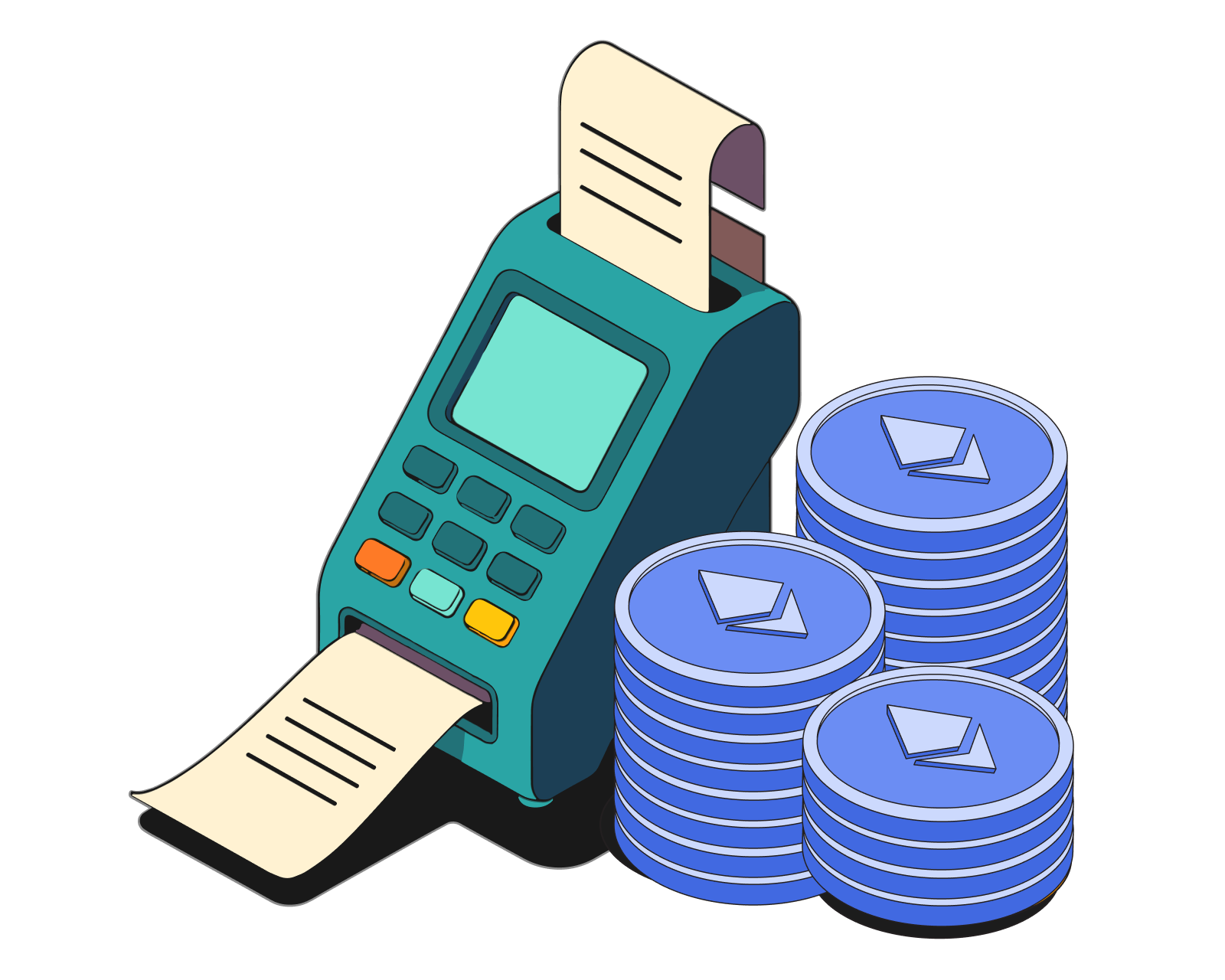
ICO Taxation Explained: Global 2026 Guide
ICOs create unique tax obligations for investors, traders, and founders. This guide explains how ICOs are taxed worldwide, covering utility vs. security tokens, taxable events, cross-border compliance, and reporting strategies.

ICO Taxation Explained: Global 2026 Guide
ICOs create unique tax obligations for investors, traders, and founders. This guide explains how ICOs are taxed worldwide, covering utility vs. security tokens, taxable events, cross-border compliance, and reporting strategies.

Bitcoin Mining Tax Reporting Guide 2026
Bitcoin mining rewards are taxable as ordinary income when received, with additional capital gains when sold. This guide explains global tax rules, reporting requirements, deductible expenses, and compliance strategies.

Bitcoin Mining Tax Reporting Guide 2026
Bitcoin mining rewards are taxable as ordinary income when received, with additional capital gains when sold. This guide explains global tax rules, reporting requirements, deductible expenses, and compliance strategies.
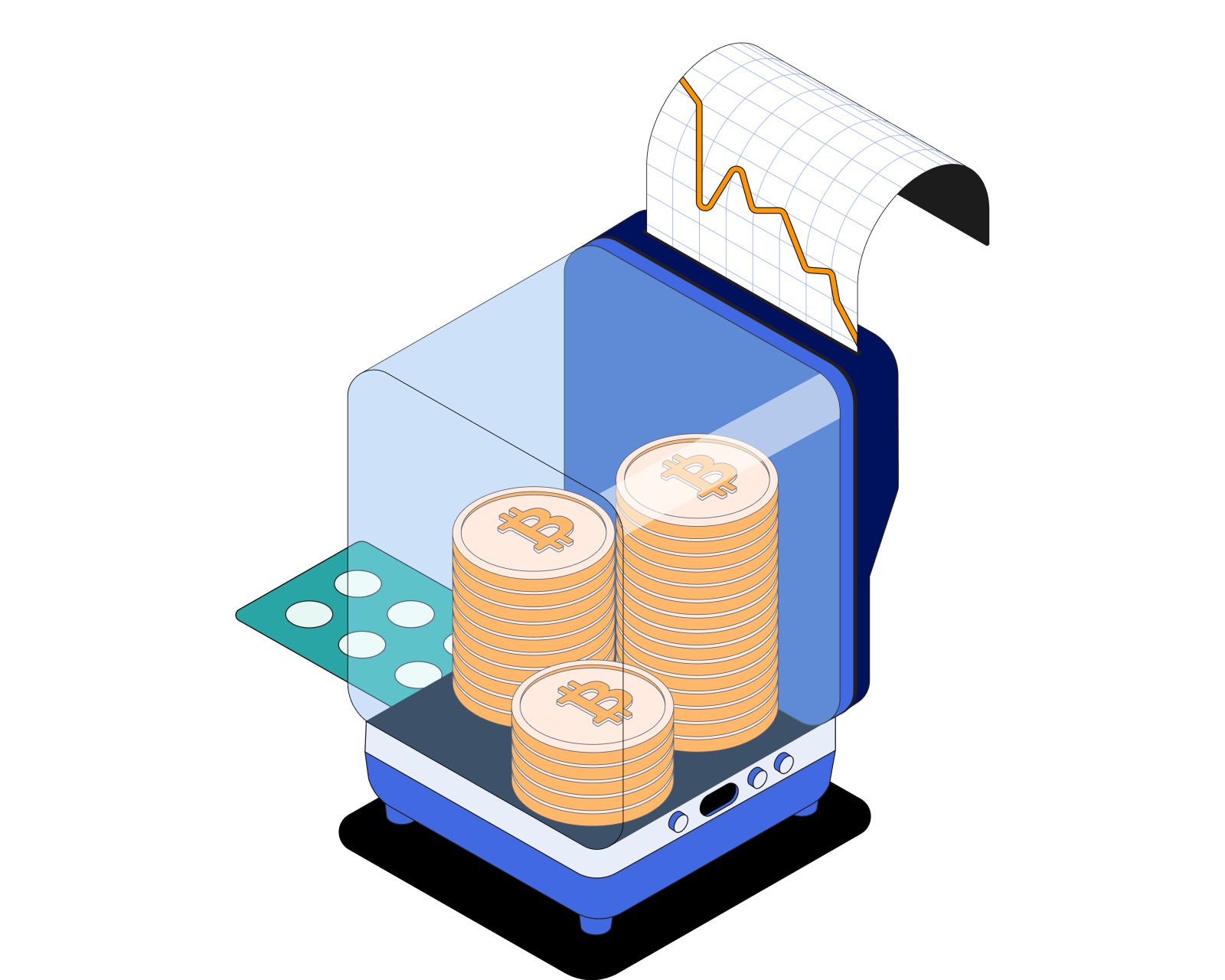
Staking Income Tax Reporting Guide 2026
Staking rewards are taxable in most jurisdictions and must be reported correctly. This guide explains IRS, CRA, HMRC, and ATO rules for staking income, covering taxable events, fair market value tracking, and compliance strategies.

Staking Income Tax Reporting Guide 2026
Staking rewards are taxable in most jurisdictions and must be reported correctly. This guide explains IRS, CRA, HMRC, and ATO rules for staking income, covering taxable events, fair market value tracking, and compliance strategies.
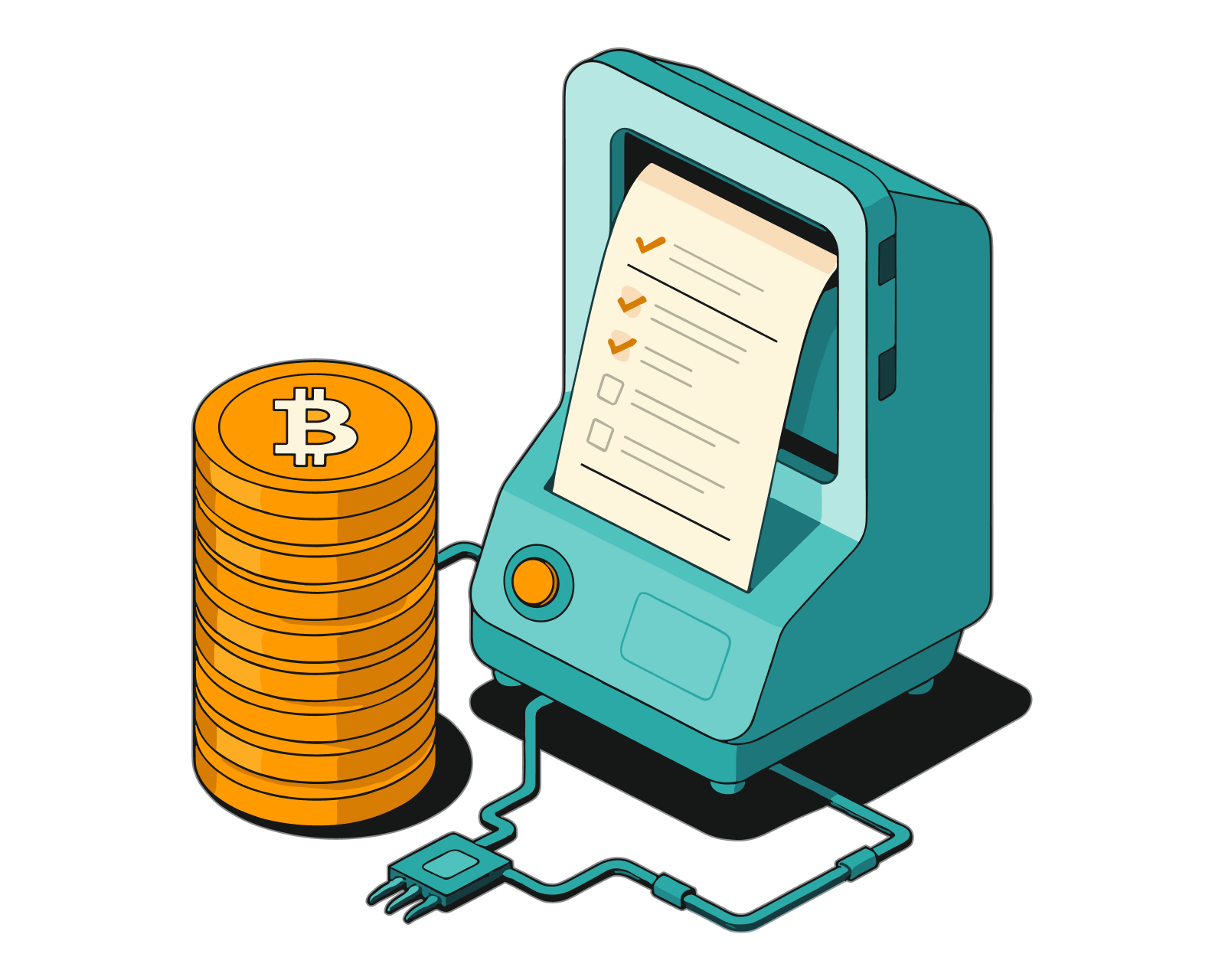
Yield Farming Tax Reporting Guide 2026
Yield farming rewards are taxable income in most jurisdictions. This guide explains how to classify DeFi rewards, track fair market value, calculate capital gains, and report yield farming income correctly.

Yield Farming Tax Reporting Guide 2026
Yield farming rewards are taxable income in most jurisdictions. This guide explains how to classify DeFi rewards, track fair market value, calculate capital gains, and report yield farming income correctly.
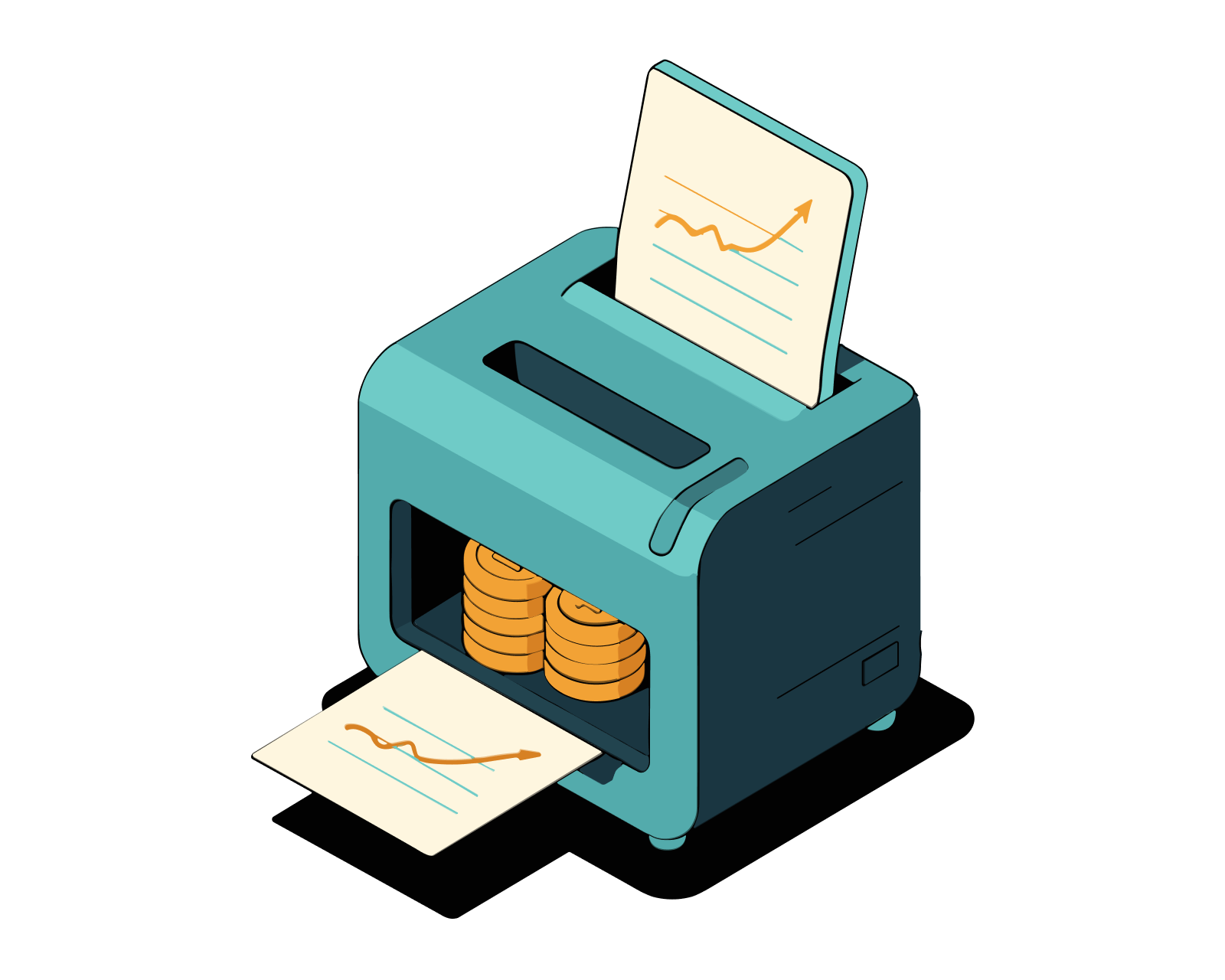
Crypto Rewards Tax Guide 2026
From staking and mining to DeFi yield farming and NFTs, crypto rewards can create taxable income. This guide explains how different rewards are taxed globally and how to report them correctly.

Crypto Rewards Tax Guide 2026
From staking and mining to DeFi yield farming and NFTs, crypto rewards can create taxable income. This guide explains how different rewards are taxed globally and how to report them correctly.
STAY AHEAD IN CRYPTO
Stay ahead in crypto with our weekly newsletter delivering the insights that matter most
Weekly crypto news, curated for you
Actionable insights and educational tips
Updates on products fueling economic freedom
No spam. Unsubscribe anytime.

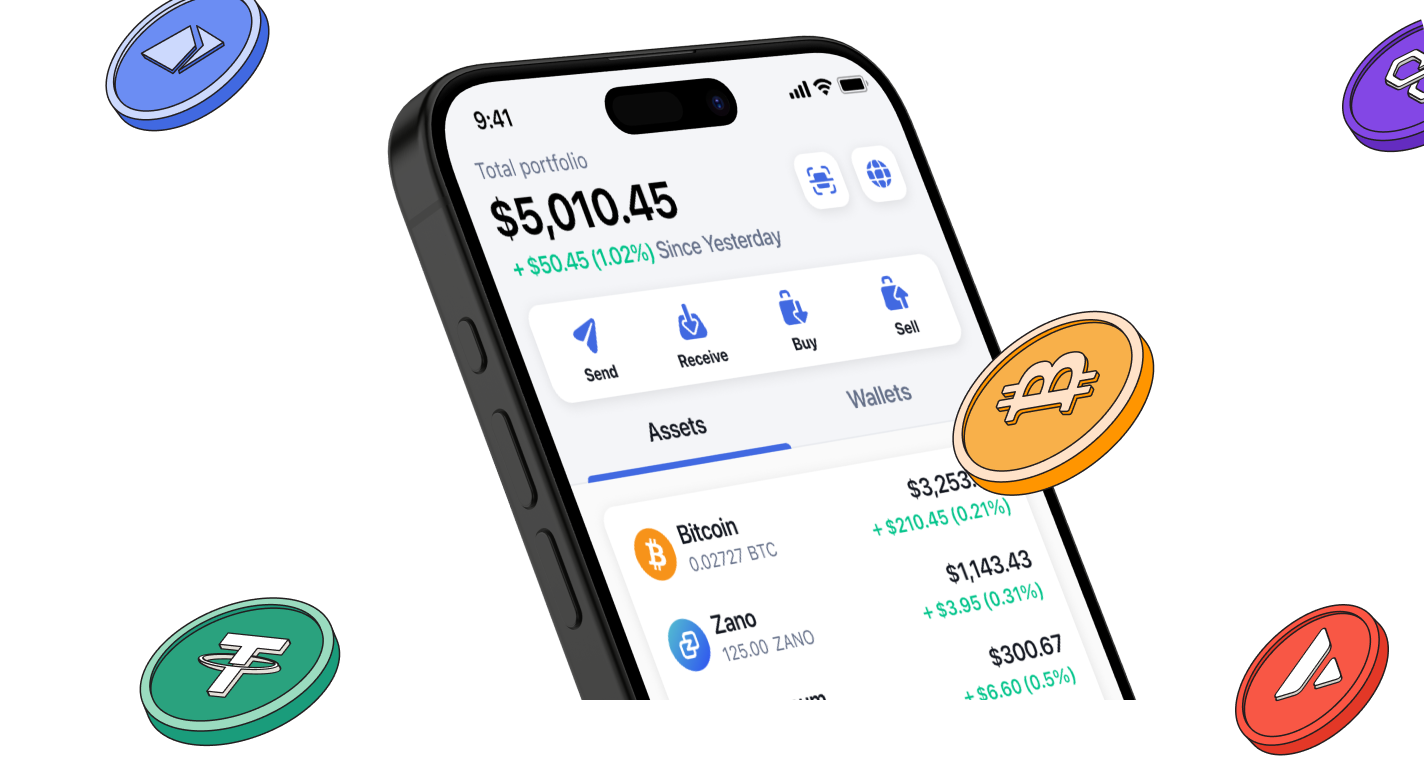
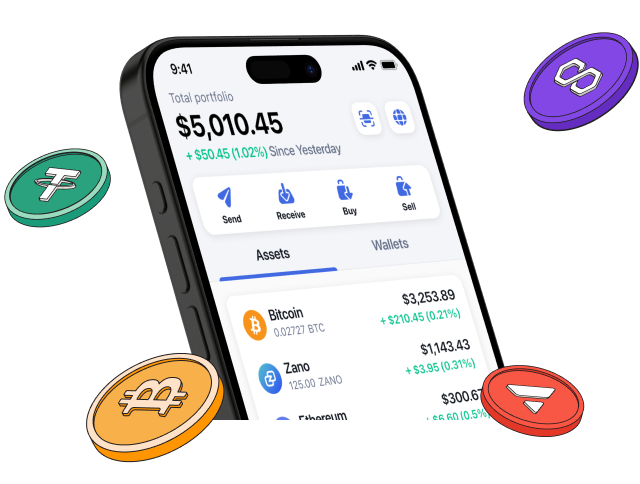
Start investing safely with the Bitcoin.com Wallet
Over wallets created so far
Everything you need to buy, sell, trade, and invest your Bitcoin and cryptocurrency securely

© 2026 Saint Bitts LLC Bitcoin.com. All rights reserved




